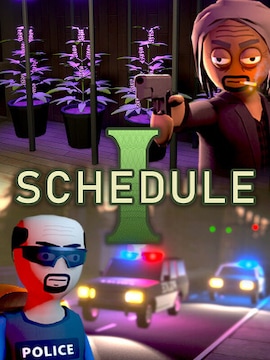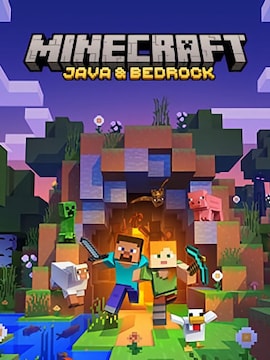The choice between SSD and HDD should be obvious at this point, but if you’re still not sure which type of drive would suit a gamer better, we’re here to help.
We know how important a good CPU or graphics card is in a gaming PC, but a proper storage device should also be taken into consideration. After all, all your games will be stored on it, so it would make sense to pick a fast and reliable drive.
The two main factors to consider when choosing a drive are the storage capacity, which determines how much stuff you can put in it, and the read/write speed, which determines how fast the data can be saved, removed, and moved around on that drive, directly affecting things like the time needed to install a game or time needed to load the next location in a game.
The two drive types you can choose from are HDD and SSD. So, which is better for gaming?
- HDDs: A Reliable Veteran
- SSDs: The Game Changer
- Key Considerations for Gamers
- SSD Form Factors: A Deep Dive
- Performance Showdown
- Speed and Cost
- Storage Capacity Needs
- Durability, Temperature, and Noise
- Energy Efficiency: SSDs Lead the Way
- Pros and Cons at a Glance
- The Future: SSDs in the Lead
- Conclusion
HDDs: A Reliable Veteran
HDD, or hard disk drive, for many years was the leading type of storage device for computers and consoles. HDD consists of moving mechanical parts, namely a magnetic disc that rotates thousands of times per minute, and a needle that moves back and forth in order to access various parts of the spinning platter.
As such, an HDD works under similar principles as a gramophone or a record player.
Having mechanical parts comes with certain inconveniences, such as higher average operating temperatures and more noise, possibly reducing the performance of the drive under heavy load and simply being annoying, as no one wants to have a jet engine running next to their ear, but we’ll talk about all of this in detail in just a second.
There are some pros to HDDs, too, so keep reading to find out more.
SSDs: The Game Changer
SSD, or solid-state drive, is a new standard for storage devices. It eliminates most of the issues of a traditional HDD while being extremely fast, too. SSDs don’t have any moving parts; they consist of electronic elements, similar to how a stick of RAM works, although it’s much slower than RAM, as it serves a completely different purpose in a computer.
SSDs are not free of issues, however, with the biggest one being the price. Although SSDs became incredibly affordable, HDDs still beat them by a mile when you look at the differences in capacity.
HDDs offer much more storage space, and this may be a deciding factor for some people, especially considering how big modern games tend to be; it’s not uncommon for an AAA video game from an established game studio to require over 100 GB of storage space. If you’re short on budget, a good HDD may still be a worthy alternative to consider.
Key Considerations for Gamers
If you’re a gamer, both the capacity and speed of the drive can be extremely important, depending on the games you want to play. If you’re playing simple games or old classics, you may not need to go for an SSD if your budget doesn’t allow it.
However, if you’re planning to play modern games, choosing an SSD can be a day-and-night difference in convenience and comfort of use. A good SSD will cut loading times in more demanding games to an absolute minimum, giving you more time to actually play the game rather than stare at the never-ending stream of loading screens. It may sound like not a big deal, but once you try it yourself and notice how much faster an SSD is, you’ll never want to go back to HDD.
The loading times can go down from 1 minute to 10 seconds, which is huge, and works not only for the games; your entire system will work faster on SSD.
If you’re on HDD, switching to SSD is the first thing to consider when upgrading the system, because of how much of a difference it makes for how little it costs.
SSD Form Factors: A Deep Dive
SSDs come in a few different form factors and it’s important to know the difference so you know which one to buy to fit in your PC.
The common form factors you’ll see everywhere are SATA, mSATA, and M.2. Depending on which form factor you choose, your SSD will have different limitations when it comes to performance.
As a rule of thumb, M.2 is the best, then it’s SATA, and finally mSATA, but you should always compare the drives on a case-to-case basis as it’s not always true.
M.2 requires a dedicated M.2 socket on your motherboard. Similarly, mSATA requires a special mSATA socket, and SATA SSD can serve as a direct replacement for your old 2.5-inch HDD. Before making a purchase, make sure your PC motherboard has the right sockets.
Alternatively, you can choose a portable SSD which can be connected to a PC via USB, which can be very convenient in certain cases. The caveat here is that it will reserve one of your USB ports, so if you don’t have too many of them, you’d probably want to use a portable SSD as temporary storage, not a permanent one.
Performance Showdown
SSDs are undoubtedly the best choice when you need a fast storage device. And that’s what you’d need to play modern games comfortably unless you prefer to spend more time reading various gameplay tips on loading screens than on playing the actual game.
Even a low-end SSD will drastically improve loading times when compared to a standard HDD; you don’t need an expensive drive to notice a difference.
Although SSD doesn’t directly enhance the performance of the game and most likely won’t affect FPS, the convenience of quick loading times is immeasurable, especially if you’re the kind of player who often uses a quick load option to repeat certain sequences in single-player games.
It can, however, enhance graphics indirectly. For example, it may help to load textures faster, improving the general experience. It may also fix audio and video stuttering issues in certain games.
Speed and Cost
SSDs write and read data much faster than HDDs and the difference is massive. To give you a general idea, a standard HDD can reach speeds of 80 to 160 MB/s, while a standard SSD can run at 200 to 550 MB/s. Even the fastest HDDs are usually slower than the slowest SSDs, and you can get much better speeds than the listed above if you choose an M.2 drive; with SATA you’re capped at around 600 MB/s but with M.2 you can easily get to 3000 MB/s for cheap. The top models can go as high as 12000 MB/s, which would be 120 times faster than a standard HDD.
To put things into perspective, with a high-end SSD you can reduce loading times in games and programs from 5 minutes to 2.5 seconds. With a more affordable SSD, you’re still looking at a 30-times difference.
You can get a budget SSD 2 TB under $100. More expensive ones can go for 120-160. For a similar price, you can get a 10 to 16 TB HDD. Specific prices may vary, depending on where you live.
Storage Capacity Needs
As technology evolves, hardware limitations become less of an issue for game developers, allowing them to make bigger games than ever. It’s not uncommon for a modern AAA video game to take over 100 GB of storage space. With games that big, if you’re short on budget, a good HDD is still worth considering, even these days. Although SSDs have become dirt cheap, HDDs still offer much more storage space for your buck.
With a limited budget, you may want to sacrifice the convenience of quick loading times for the ability to have more games installed at once, but it’s not advisable these days; you should rather get a combo of a small SSD and a medium HDD instead.
Durability, Temperature, and Noise
SSDs are more expensive than HDDs but it’s completely justified. They’re not only much faster, but they’re also more durable, don’t overheat that easily, have better tolerance for high and low temperatures, and are completely silent.
They’re more resistant to shock and if you accidentally drop one, it usually won’t harm the stored data, unless the SSD gets cracked or dented in the process. As long as the internal structure remains intact, it should work just fine, but it’s always better to try to avoid such scenarios altogether.
Energy Efficiency: SSDs Lead the Way
When it comes to energy efficiency, it’s actually a complex matter. SSDs are generally considered to be more efficient but it’s not always the case. High-end SSDs can consume more power than a standard HDD, but that’s the price you pay for much better performance, just like faster graphics cards usually require more watts to run.
With that being said, SSDs generally require much less energy when idle, but once the load gets heavier, HDD gets the advantage.
If you plan to cut electricity costs by getting a more efficient type of storage device – don’t. SSDs are too expensive to give you an advantage in that department.
Pros and Cons at a Glance
HDD pros:
- cheaper,
- better price per gigabyte,
- longer lifespan,
- can be easier to recover data in case of a drive failure,
- usually gives signs of going bad soon, allowing you to react and make backups before it breaks
HDD cons:
- noisy,
- slow,
- may overheat,
- prone to mechanical damage,
- uses more power when idle
SSD pros:
- fast,
- silent,
- resistant to mechanical damage,
- works fine under a much wider range of extreme temperatures,
- uses less power when idle
SSD cons:
- expensive,
- can be harder to recover data after failure,
- may stop working without giving any warning,
- needs 10-15% space reserved to operate efficiently
The Future: SSDs in the Lead
As of now, there’s nothing that would suggest the trend to change in the near future: HDDs remain the king of capacity for cheap mass storage and SSDs offer the best performance for maximum comfort of use.
As long as the industry keeps developing in the same direction, then no matter how efficient SSDs are, HDDs will always have a reason to exist, until we come up with a completely new technology that will shake things up unpredictably. However, if your budget allows, you should always try to go for an SSD, as it’s simply a superior type of storage device, especially for gaming.
As the games get bigger, they will be increasingly annoying to download and install on HDDs.
Conclusion
As long as you’re ready to pay some extra, the winner of an SSD vs HDD duel is clear; there’s no need to go for an HDD anymore for gaming.
Even if you’re tight on budget, it would be more advisable to get a small SSD supported by a medium HDD, rather than one large HDD. The difference in comfort of use is simply too big to ignore these days.




